Mushrooms have been linked to promoting liver health due to their bioactive compounds, including antioxidants, polysaccharides, and triterpenoids. Notably, varieties like Reishi, Turkey Tail, and Shiitake are believed to exhibit hepatoprotective properties, which can be beneficial in preventing liver diseases. Studies suggest these mushrooms help enhance liver function, combat oxidative stress, and promote the regeneration of damaged liver cells.
However, while research is promising, combining a balanced diet, regular exercise, regular medical check-ups, and mushrooms for optimal liver health is always essential. Always source safe, non-toxic mushrooms, and consider any potential allergies before incorporating them into your diet.
Understanding the impact of mushrooms on liver health offers us a window into the intriguing world of nature's pharmacy. These fascinating fungi have been a part of human culinary practices for centuries, and their use in traditional medicine dates back even further. This article will delve deeper into the science behind the connection between mushrooms and liver health, spotlighting fundamental studies and offering practical advice on how to incorporate these beneficial fungi into your diet.
Understanding Mushrooms: A Culinary and Medicinal Powerhouse
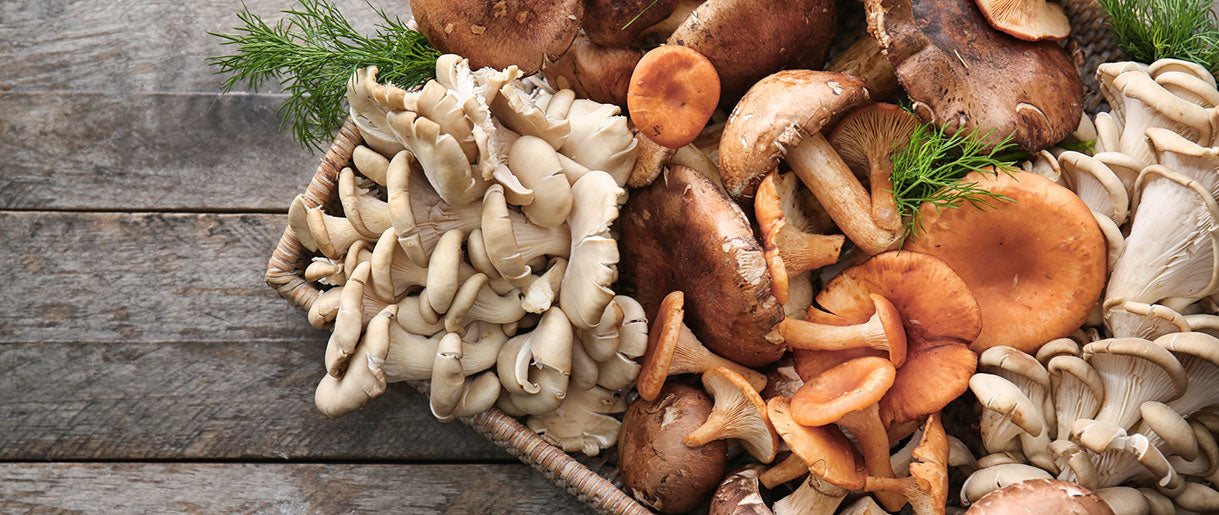
A Journey through Time: Mushrooms in Culinary and Medicinal Practices
Mushrooms have been enjoyed as a culinary staple for centuries across many cultures. These edible mushrooms' rich taste and umami flavor have graced countless recipes, enhancing taste and texture.
However, their role extends beyond just being a food item. Medicinal mushrooms, such as Ganoderma lucidum (Reishi) and Cordyceps sinensis, have been utilized in various healing traditions, marking their importance among natural remedies.
Interestingly, Ganoderma lucidum, the 'mushroom of immortality,' has been revered in traditional Chinese medicine for its health-boosting properties. This mushroom was not just a staple of ancient medicine but is now widely used as a dietary supplement, showcasing the endurance of its therapeutic popularity.
Unveiling the Nutritional Power of Mushrooms
Edible mushrooms aren't just about flavors and medicinal properties; they also pack a powerful nutritional punch. These fungal wonders are low in calories, high in fiber, and packed with essential vitamins and minerals. Whether it's vitamin D from sunlight-exposed mushrooms or the unique iron content in the oyster mushroom, each type brings something unique to the table.
Particularly intriguing is Ganoderma lucidum, mentioned multiple times in scientific studies for its potent bioactive compounds. Reishi mushrooms confer multiple health benefits, making Ganoderma lucidum an attractive option for those interested in the intersection of nutrition and wellness.
Unlocking the Science: Mushrooms and Liver Health

Bioactive Compounds in Mushrooms: Champions of Liver Health
The journey to understanding how mushrooms promote liver health starts at a microscopic level—the bioactive compounds. Mushrooms, like Ganoderma lucidum, are rich in antioxidants, polysaccharides, triterpenoids, and phenolic compounds. These compounds are vital in maintaining liver function and overall human health.
Antioxidants are essential in combatting oxidative stress, a significant contributor to liver damage and diseases. They neutralize harmful free radicals in the body, thereby supporting healthy liver function.
Polysaccharides and triterpenoids, on the other hand, are linked to reducing liver inflammation and slowing the progression of liver fibrosis, a condition marked by excessive accumulation of scar tissue in the liver.
Scientific Studies: Mushrooms as Hepatoprotective Agents
In the realm of scientific research, both animal studies and human studies have provided insight into mushrooms' role in promoting liver health. These studies often focus on common liver diseases, such as alcoholic fatty liver disease and metabolic liver syndrome, showcasing how mushrooms can support liver function and even help mitigate liver damage.
For instance, several studies(1) have indicated that Ganoderma lucidum may help reduce liver fibrosis and support healthy liver function by modulating liver enzymes and reducing oxidative stress. It's also been suggested that it can potentially assist in regulating blood glucose levels, a crucial factor in metabolic liver syndrome. Reishi is often used for diabetes because it improves blood sugar levels.
Further, a research study(2) on humans with non-alcoholic fatty liver disease demonstrated a decrease in the disease's severity after the subjects consumed a dietary supplement made of Ganoderma lucidum. The supplement helped lower liver enzymes, a marker often elevated in liver diseases, indicating improved liver function.
These studies, while promising, represent a growing interest in mushrooms within the field of alternative and complementary medicine, emphasizing their potential in managing liver diseases. Despite the promising results, more extensive human studies are needed to understand the mechanisms behind these hepatoprotective properties fully.
Exploring the Power of Specific Mushrooms on Liver Health
Reishi Mushrooms (Ganoderma lucidum): The Liver's Ally
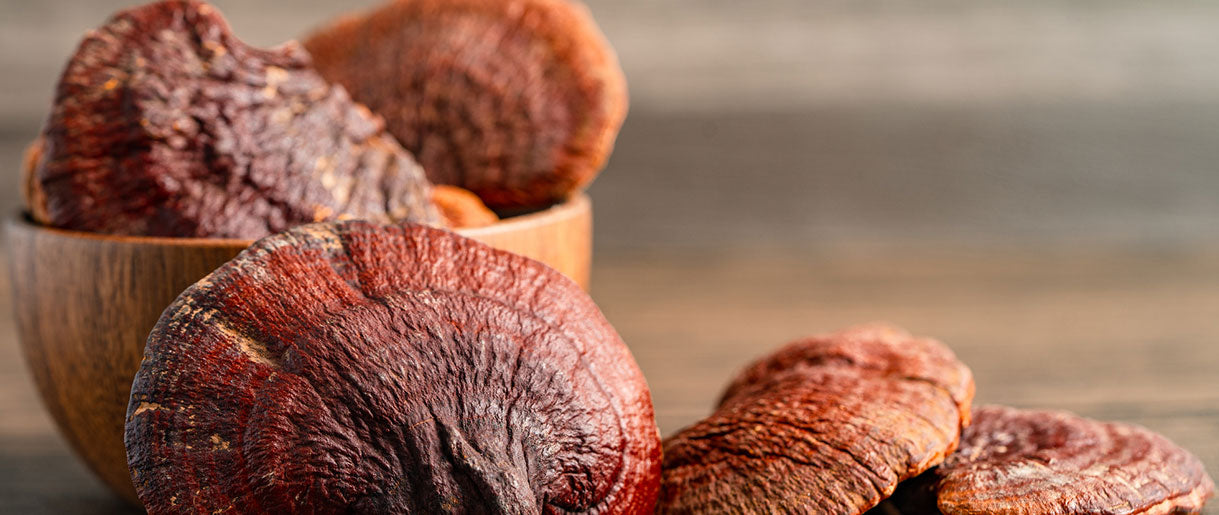
Reishi mushrooms, or Ganoderma lucidum, are renowned in traditional medicine for their extensive health benefits. Regarding liver health, reishi mushrooms have shown significant promise. The bioactive compounds in these mushrooms, such as triterpenoids, help combat oxidative stress, reducing liver damage caused by harmful substances.
Numerous studies have indicated that reishi mushrooms can potentially improve liver function in cases of acute hepatitis and alcoholic fatty liver diseases. They do so by modulating antioxidant enzymes, which counteract the effects of reactive oxygen species, thus reducing lipid peroxidation that leads to liver injury.
Furthermore, reishi mushrooms have shown(3) the potential to reduce liver fibrosis, a precursor to liver cirrhosis. They do this by limiting the production of scar tissue in the liver, a key component of liver fibrosis.
Turkey Tail Mushrooms (Trametes versicolor): A Natural Liver Protector
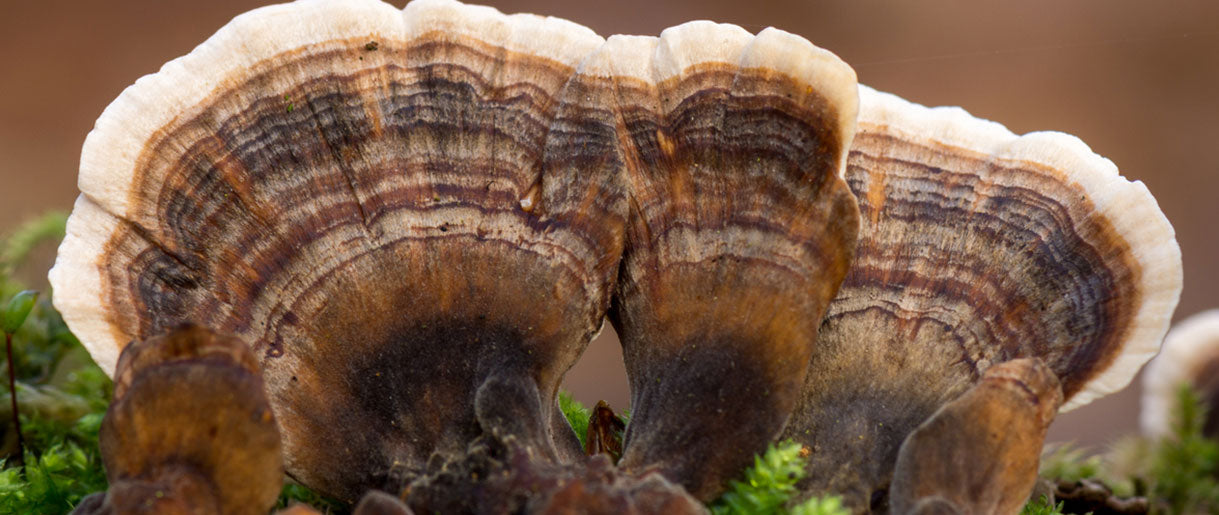
Turkey tail mushrooms are edible and medicinal mushrooms that can support liver health. They are rich in polysaccharides, which boost the body's antioxidation capacity, protecting hepatic cells from oxidative stress. These mushrooms also demonstrate hepatoprotective effects against induced liver injury.
A notable study on the benefits of turkey tail mushrooms for liver health suggested that the isolated compounds from turkey tail mushrooms could inhibit the progression of chronic hepatitis B. This finding indicates that turkey tail mushrooms might play a role in managing this prevalent liver disease.
Shiitake Mushrooms (Lentinula edodes): A Nutritional Powerhouse for Liver Health
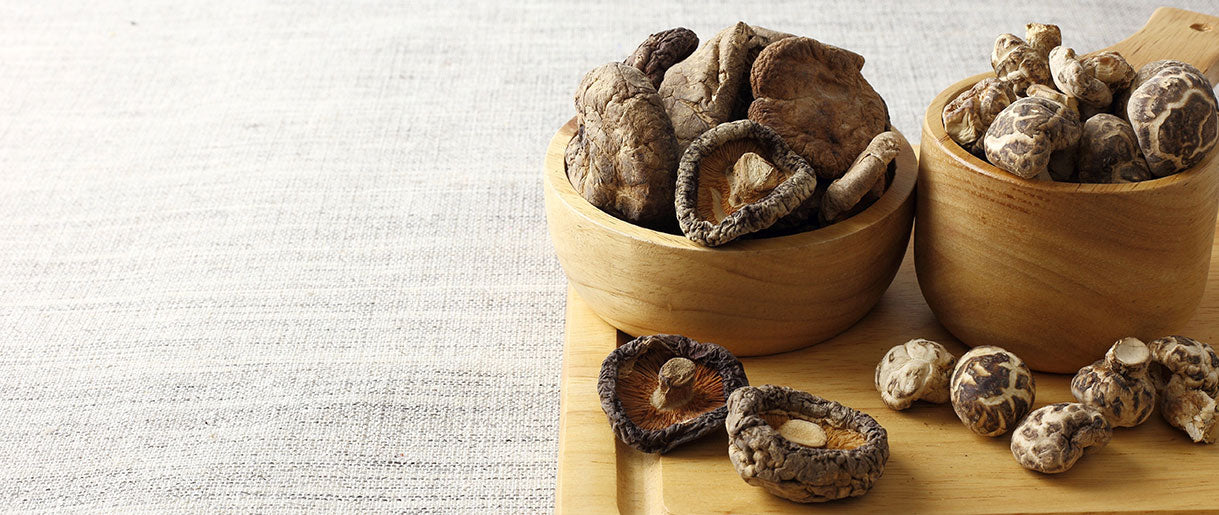
Shiitake mushrooms are not only delicious but also beneficial to liver health. They are packed with amino acids and fatty acids, which are crucial for liver functions. The bioactive compounds in shiitake mushrooms show a potent antioxidant activity that aids in alleviating oxidative stress, a common factor in many liver diseases.
In a study(4) concerning dimethylnitrosamine-induced liver injury, shiitake mushrooms helped restore liver functions by reducing scar tissue formation. Furthermore, they demonstrated the ability to lower blood pressure, a risk factor for metabolic syndrome, which can lead to non-alcoholic fatty liver disease.
Cordyceps: An Ancient Remedy for Modern Liver Problems
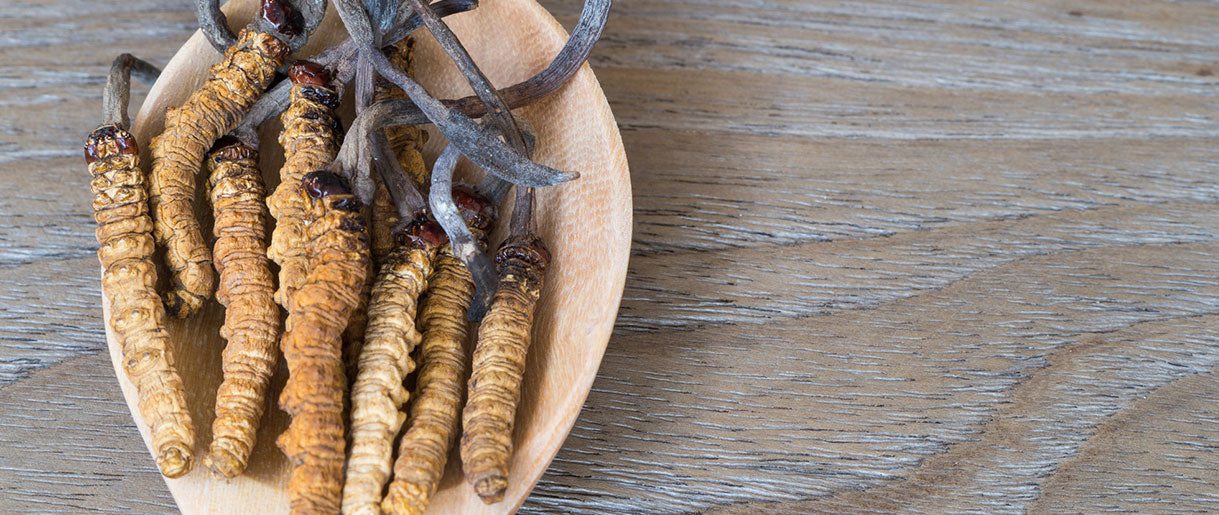
Finally, Cordyceps, a unique genus of mushrooms, shows encouraging signs of supporting liver health. Notably, Cordyceps have been reported to possess protective effects against liver fibrosis and hepatocellular carcinoma, a common type of liver cancer. Interestingly, however, cordyceps' benefits for cancer extend beyond the liver.
Animal studies(5) have indicated that Cordyceps could protect against acute hepatitis by improving mitochondrial function and preventing cell death in the liver. It's thought that the high antioxidant capacity of Cordyceps plays a significant role in this protective effect.
Lion's Mane Mushroom (Hericium erinaceus): The Brain and Liver Booster
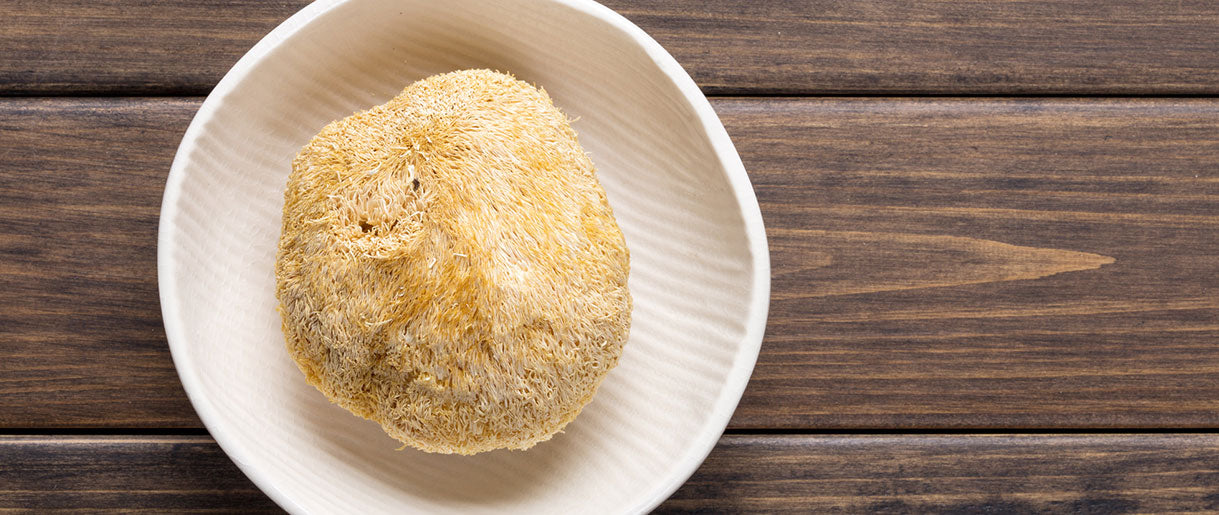
Lion's Mane mushrooms have been historically celebrated for their potential brain-boosting properties. But recent research suggests that they also carry liver health benefits. Lion's Mane mushrooms are rich in bioactive compounds, believed to improve liver function and protect against induced liver injury.
One of Lion's Mane's benefits for liver health is protecting against acute hepatitis by promoting antioxidation enzymes and reducing oxidative stress. It is also thought to enhance glutathione peroxidase, an antioxidant enzyme, further protecting liver cells from oxidative damage. Moreover, an animal study conducted in 2015(6) suggested that Lion's mane could protect the liver from alcohol-induced damage.
Maitake Mushrooms (Grifola frondosa): A Natural Solution for Liver Health
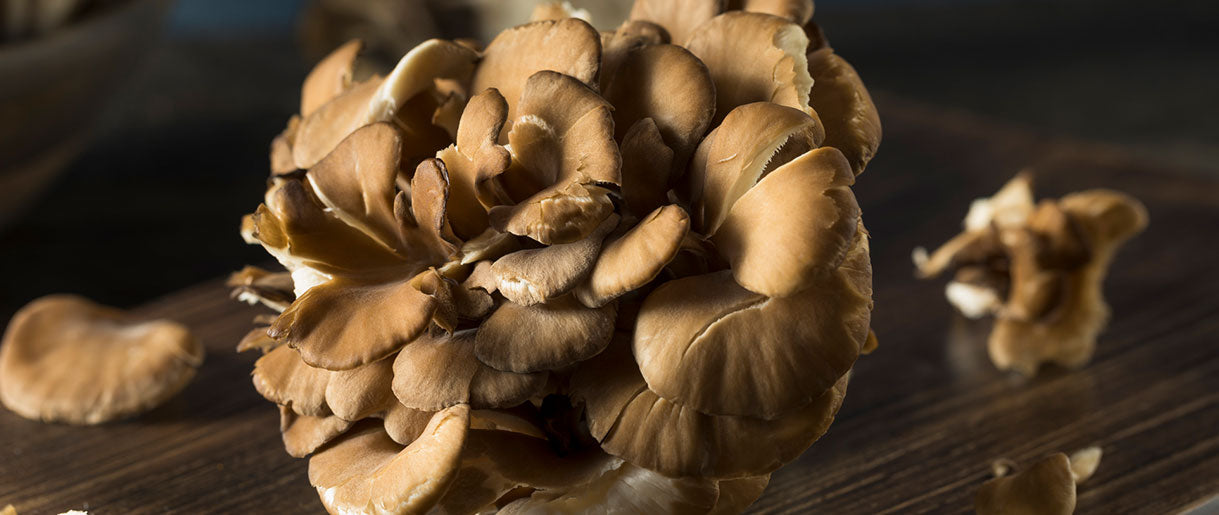
Maitake mushrooms are a powerhouse of nutrients and bioactive compounds. They have been linked to multiple health benefits, including potential support for liver health. Maitake has shown potential in managing metabolic syndrome, which can lead to serious liver diseases.
Research studies(7) on Maitake have demonstrated it can help regulate blood glucose levels and reduce insulin resistance, a significant component of metabolic syndrome. It also exhibits antioxidant activity, protecting against oxidative stress on hepatic cells.
Chaga Mushrooms (Inonotus obliquus): A Potent Antioxidant
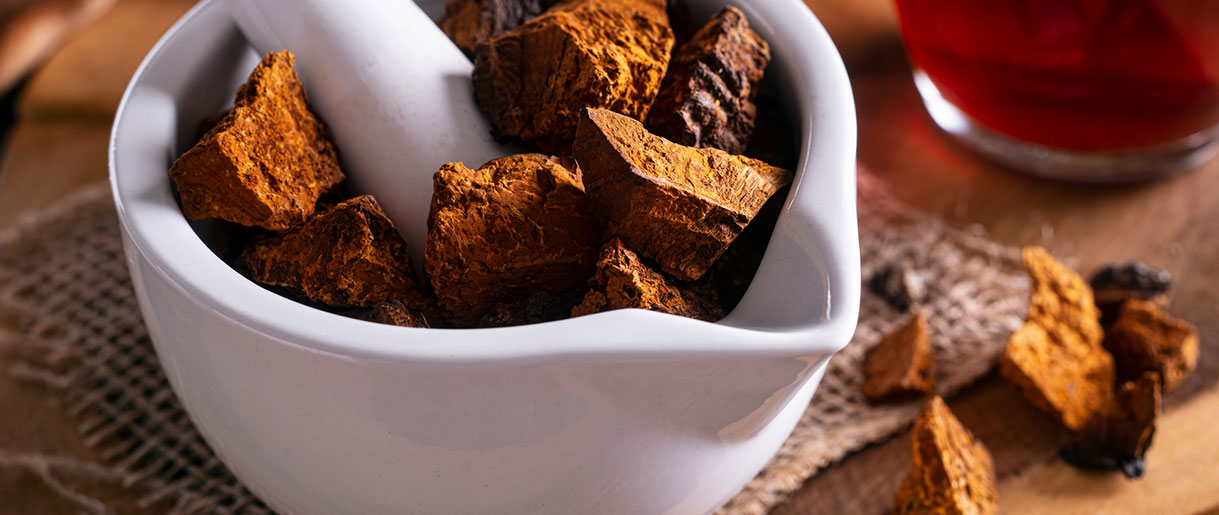
Chaga mushrooms, renowned for their high antioxidant capacity, can help protect the liver from oxidative damage, thus promoting health. Chaga mushrooms can reduce lipid peroxidation, one of the primary mechanisms leading to liver cell damage.
Furthermore, Chaga has demonstrated potential in managing liver fibrosis. Studies have indicated that Chaga mushrooms benefit the liver by slowing down scar tissue formation, a significant aspect of liver fibrosis.
Oyster Mushrooms (Pleurotus ostreatus): Nutritional Power for Liver Health
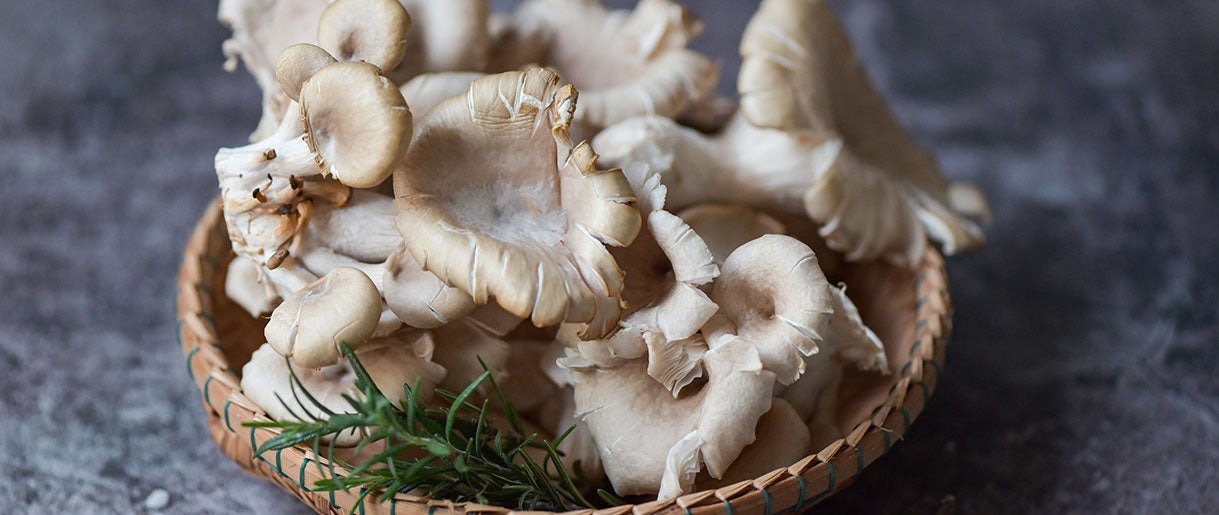
Oyster mushrooms, a popular type of edible mushrooms, are a culinary delight and a potential liver ally. They are rich in amino acids, essential fatty acids, and bioactive compounds that contribute to liver health.
Studies have shown that(8) oyster mushrooms can reduce the severity of liver diseases by enhancing liver function and offering protection against liver damage. Furthermore, these mushrooms improve gut health, crucial for overall digestive system functioning, and indirectly support liver health.
Embracing Mushrooms for Optimal Liver Health: Practical Guidelines and Suggestions

Tips for Selecting and Preparing Mushrooms
When incorporating medicinal mushrooms into your diet, making informed choices is essential. Always choose fresh mushrooms over wilted or discolored ones, as they have better nutritional value, including potent antioxidant properties.
Preparing mushrooms is relatively simple. Wash them gently under running water to remove any dirt or debris. Cooking mushrooms is recommended as it helps break down their cell walls, making their nutrients more accessible. Sauteing, grilling, and baking are all excellent ways to prepare mushrooms, preserving their taste and health benefits.
Savory Recipes for a Mushroom-Infused Diet
Mushrooms are versatile and can be easily incorporated into numerous meals. You can sauté them in olive oil, a source of healthy fats, and add them to your omelets or salads. They can also be included in soups, stews, and stir-fry dishes for a delicious and nutritious addition.
A fun way to incorporate more mushrooms into your diet is by using them as a meat substitute in dishes like mushroom burgers, mushroom tacos, or even mushroom-based pasta sauces. This boosts your intake of medicinal mushrooms and adds a unique flavor profile to your meals. Our Lion's mane mushroom recipes can act as a starting point for incorporating medicinal mushrooms into your diet.
Precautions and Considerations in Mushroom Consumption
While mushrooms are generally safe for consumption by healthy older subjects and offer significant health benefits, there are necessary precautions to remember. First, sourcing your mushrooms from reliable and safe vendors is essential to avoid consuming varieties that may contain toxic chemicals or are grown in unhealthy conditions.
It's also important to remember that while medicinal mushrooms can support liver health, they should not be used as a standalone treatment for severe conditions like liver failure. Instead, they should complement a comprehensive treatment plan guided by a healthcare professional.
Allergies to mushrooms, while not very common, do exist. So, if you're consuming a new variety for the first time, start with small amounts and monitor your body's reaction.
Finally, while mushrooms have many health benefits, they should be consumed as part of a balanced diet, which can include dietary supplements under professional advice. They are not a substitute for a varied diet and healthy lifestyle but a valuable addition.
Beyond Mushrooms: Other Essential Lifestyle Factors for Optimal Liver Health

The Power of a Balanced Diet and Regular Exercise
While mushrooms offer numerous benefits for liver health, it's essential to remember that they should be part of a balanced diet that includes a variety of fruits, vegetables, lean proteins, and whole grains. Such a diet can provide all the necessary nutrients for maintaining healthy red blood cells and liver function.
Regular physical activity is also a cornerstone of liver health. Exercise helps maintain a healthy weight, reducing the risk of fatty liver disease. Additionally, it helps regulate high blood pressure, which is linked to several liver conditions. Aim for cardiovascular activities, strength training, and flexibility exercises for optimal health.
Moderation in Habits: The Key to Liver Health
Excessive alcohol consumption is a leading cause of liver disease worldwide. Therefore, moderation in alcohol consumption is crucial for maintaining liver health. Reducing or eliminating alcohol can significantly decrease the risk of developing conditions like alcoholic hepatitis or cirrhosis.
Smoking and excessive use of certain medications can also negatively impact the liver. Therefore, it's essential to quit smoking and only use medications as directed by a healthcare provider.
Prevention and Early Detection: The Best Defense Against Liver Disease
Regular health check-ups are integral to early detection and prevention of liver diseases. Liver function tests can help detect liver operation abnormalities, enabling early intervention.
It's also crucial to get vaccinated against liver diseases like hepatitis A and B. If you're at risk for hepatitis C, regular screenings can help catch the disease early, increasing the effectiveness of treatment.
Mushroom For Liver Video
FAQs About Mushrooms for Liver Health
What Mushroom Is Best For Fatty Liver?
Due to their hepatoprotective properties, reishi mushrooms (Ganoderma lucidum) are often considered the best for fatty liver. They contain potent bioactive compounds like polysaccharides and triterpenoids, which are believed to have anti-inflammatory and antioxidant effects.
Studies have shown that reishi mushrooms can help reduce liver inflammation, prevent fat accumulation in the liver, and improve liver function, making them particularly beneficial for those with fatty liver disease.
What Mushrooms Are Good For Kidneys?
Several types of mushrooms improve kidney health due to their rich content of antioxidants and anti-inflammatory compounds.
- Cordyceps: Traditionally used in Chinese medicine, Cordyceps mushrooms improve kidney function and slow the progress of kidney disease. They are often used as an adjunctive therapy for chronic kidney diseases and diabetic kidney disease.
- Reishi (Ganoderma lucidum): Reishi mushrooms are recognized for their antioxidant properties, which can help protect the kidneys from oxidative damage. They also possess anti-inflammatory properties, which may support overall kidney health.
- Shiitake: Shiitake mushrooms are rich in essential nutrients and antioxidants, helping to protect the kidneys from damage. They also contain compounds that could potentially boost the immune system, benefiting overall health, including kidney health.
- Lion's Mane: This mushroom has shown the potential to protect against kidney damage in preclinical studies due to its anti-inflammatory and antioxidant properties.
However, consult a healthcare provider before using these mushrooms, especially if you have existing kidney conditions or are on any medications.
Do Mushrooms Remove Toxins From The Body?
Mushrooms have properties that can assist in the body's detoxification processes, but they don't "remove toxins" in the most commonly understood way.
Many mushrooms contain high levels of antioxidants, such as ergothioneine, that can help protect cells from damage by toxins and free radicals. Some mushrooms, particularly medicinal types like Reishi (Ganoderma lucidum) and Turkey Tail (Trametes versicolor), have been shown to support liver function, a crucial organ involved in the detoxification process in our body.
Reishi, for instance, contains triterpenoids and polysaccharides that are believed to help protect the liver, potentially assisting this organ in detoxifying harmful substances from the body.
In addition to these benefits, some studies suggest that certain mushrooms may have a chelating effect, meaning they can bind to heavy metals in the body and aid in their removal.
Key Takeaways
Mushrooms have much to offer, especially regarding liver health. Their bioactive compounds, like antioxidants, polysaccharides, and triterpenoids, can support liver function and protect against liver diseases, including liver fibrosis and alcoholic fatty liver disease.
According to current scientific research, edible and medicinal mushrooms like Reishi, Turkey Tail, Shiitake, Cordyceps, Lion's Mane, Maitake, Chaga, and Oyster mushrooms have unique contributions to liver health. Each of these mushroom types, with their unique bioactive compounds, has shown promise in promoting liver health, reducing oxidative stress, and mitigating liver damage.
However, while mushrooms carry potential health benefits, it's essential to remember that they should not be considered a standalone treatment for liver diseases. Instead, they should be part of an overall healthy lifestyle and, where appropriate, a comprehensive treatment plan managed by a healthcare professional.
We hope you've found this article insightful. We'd love to hear from you if you have any thoughts, experiences, or queries about mushrooms for liver health. Please leave a comment below. Your shared wisdom might just be the information another reader needs.
References
- Ganoderma lucidum: Current advancements of characteristic components and experimental progress in anti-liver fibrosis, (1)https://www.ncbi.nlm.nih.gov/pmc/articles/PMC9872944/
- Ganoderma lucidum Ameliorates Non-Alcoholic Steatosis by Upregulating Energy Metabolizing Enzymes in the Liver, (2)https://www.ncbi.nlm.nih.gov/pmc/articles/PMC6025418/
- Preventive and Therapeutic Effect of Ganoderma (Lingzhi) on Liver Injury, (3)https://pubmed.ncbi.nlm.nih.gov/31777021/
- Hepatoprotective effect of extracts from Lentinus edodes mycelia on dimethylnitrosamine-induced liver injury, (4)https://pubmed.ncbi.nlm.nih.gov/15577212/
- Cultured MyceliumCordyceps sinensis allevi¬ates CCl4-induced liver inflammation and fibrosis in mice by activating hepatic natural killer cells, (5)https://www.nature.com/articles/aps2015129
- Protective Effect ofHericium erinaceus on Alcohol Induced Hepatotoxicity in Mice, (6)https://www.ncbi.nlm.nih.gov/pmc/articles/PMC4415743/
- Fraction SX of maitake mushroom favorably influences blood glucose levels and blood pressure in streptozotocin-induced diabetic rats, (7)https://pubmed.ncbi.nlm.nih.gov/22873755/
- Taurine and Oyster Mushroom (Pleurotus Ostreatus) Prevents Oxidative Damage in Liver of Mice Induced by Paraquat, (8)https://biomedpharmajournal.org/vol10no4/taurine-and-oyster-mushroom-pleurotus-ostreatus-prevents-oxidative-damage-in-liver-of-mice-induced-by-paraquat/







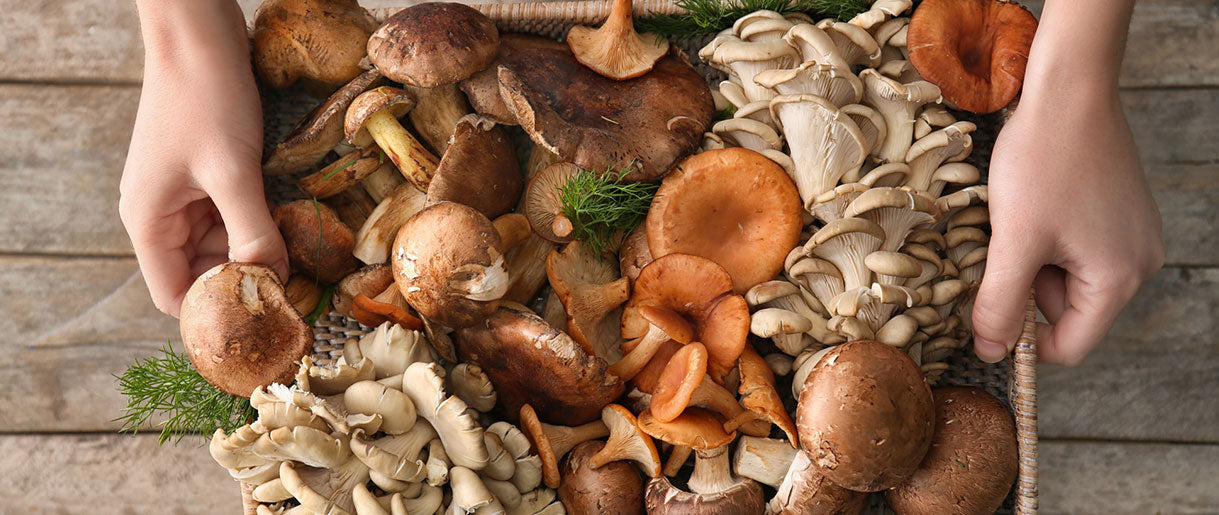

Let Us Know Your Comments